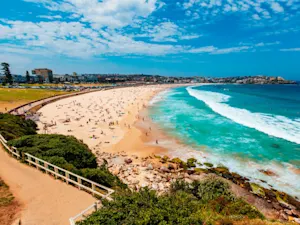
Hope for Refugees on the Olympic® Stage
The 2024 Paris Olympics® marked a special occasion for athletes from across the globe, but few teams embody the spirit of perseverance and hope like the Refugee Olympic Team. Competing for only the third time in Olympic® history, this unique team is comprised of 37 athletes hailing from 11 different countries, each of whom has overcome immense challenges to reach the world's grandest sporting stage.
The Meaning Behind the Refugee Olympic Team
The Refugee Olympic Team, abbreviated as EOR (Equipe Olympique des Réfugiés), represents the more than 100 million displaced people worldwide. Their presence at the Paris Games is a poignant reminder that the Olympic spirit transcends borders and hardships. The International Olympic Committee (IOC) established the team to ensure that displaced athletes can pursue their dreams of competing at the highest level, regardless of the adversity they face.
IOC President Thomas Bach, speaking at a virtual meeting in May, emphasized the significance of the team, stating that it serves as a powerful message of hope for refugees worldwide. "We welcome all of you with open arms. You are an enrichment to our Olympic Community and to our societies," Bach declared, as reported by NBC, reflecting the deep sense of inclusion and solidarity that the Olympic Games aspire to foster.
A Brief History of the Refugee Olympic Team
The origins of the Refugee Olympic Team trace back to the Rio 2016 Games, where 10 athletes made history as the first ever to compete under the IOC's refugee banner. The team expanded to 29 athletes for the Tokyo 2020 Games, which took place in 2021 due to the COVID-19 pandemic. Now, in Paris, the team's growth continues, reflecting the increasing global awareness of refugee issues.
This year's Refugee Olympic Team was the largest to date, featuring athletes from countries such as Iran, Afghanistan, Syria, South Sudan, Sudan, Eritrea, the Congo, Cameroon, Ethiopia, Venezuela, and Cuba. These athletes are competing in 12 different sports, including judo, swimming, cycling, boxing, athletics, and more. Each of them carries a story of resilience, having fled conflict, persecution, and other dire circumstances in search of safety and a new beginning.
A Beacon of Hope and Resilience
The athletes of the Refugee Olympic Team not only compete for medals; they compete to raise awareness about the plight of refugees around the world. Their journey to the Olympics is often fraught with challenges far greater than those faced by other athletes. For many, the road to Paris has been a long and arduous one, filled with uncertainty and obstacles. Yet, their participation in these Games is a testament to the indomitable human spirit. This was powerfully underscored when boxer Cindy Ngamba won the team's first-ever Olympic medal, a bronze, marking a historic moment that resonated far beyond the boxing ring.
As we reflect on the 2024 Paris Olympics, the Refugee Olympic Team stands as a beacon of hope and resilience. These athletes, through their sheer determination and courage, remind the world of the power of sports to unite, inspire, and uplift, regardless of the circumstances. Their participation is not just about competing; it's about sending a message to the world that, no matter where you come from or what you've been through, dreams are worth pursuing, and hope can always be found, even in the darkest of times.
References: What Is the Refugee Olympic Team at the 2024 Paris Olympic Games? | The Refugee Olympic Team wins its first-ever medal, thanks to boxer Cindy Ngamba
























